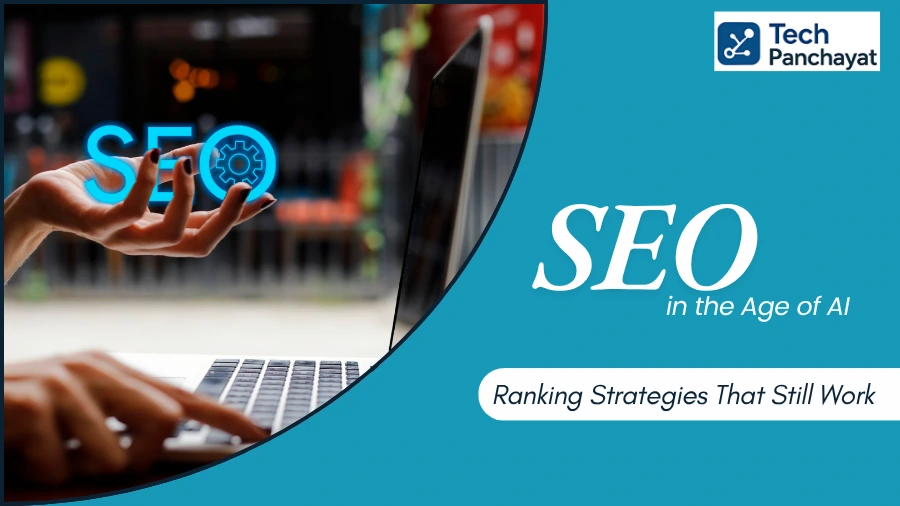SEO in the Age of AI is no longer just a trend it’s a fundamental shift in how digital content is created, optimized, and ranked across the web. As artificial intelligence continues to shape search engine algorithms, SEO in the Age of AI demands a deeper understanding of user intent, content relevance, and behavioral analytics. Search engines like google now rely on AI to interpret natural language, evaluate engagement metrics like bounce rates and dwell time, and identify content that best matches the context of a user’s query. This means that anyone involved in digital marketing must embrace SEO in the Age of AI to stay competitive in today’s dynamic online environment.
One of the most impactful changes brought by SEO in the Age of AI is the way content is discovered. AI-powered tools can now analyze billions of data points to surface content that aligns with searcher intent, not just keyword density. As a result, modern SEO focuses on crafting valuable, in-depth content that answers questions and provides solutions than merely stuffing pages with keywords. However, that doesn’t mean traditional practices are obsolete. In fact, SEO in the Age of AI still thrives on strong fundamentals: clean site structure, authoritative backlinks, mobile responsiveness, and fast loading speeds.
What sets SEO in the Age of AI apart is its ability to personalize user experiences and predict trends before they fully emerge. Tools like ChatGPT, Google’s BERT, and other machine learning models are changing how content is generated, evaluated, and served. This means that to succeed with SEO in the Age of AI, marketers must adopt an agile mindset – testing, analyzing, and optimizing content based on real-time insights. Yet, amidst all this technology, the human element remains critical. Content that speaks directly to a user’s needs, builds trust, and delivers actionable value is still at the heart of effective SEO in the Age of AI.
Why SEO in the Age of AI Matters for Digital Success
In 2025, SEO in the Age of AI is more dynamic than ever. AI-powered search engines analyze user intent, content relevance, and engagement metrics to determine rankings. Understanding how traditional SEO strategies work alongside AI insights is key to maintaining visibility and driving organic traffic.
Prioritize High-Quality, Human-Centric Content
Even with AI-driven algorithms, AI SEO strategies reward content that is original, informative, and user-friendly.
- Focus on user intent: Ensure your content answers real questions and provides value. AI can detect content that genuinely satisfies users.
- Depth over volume: Long-form, comprehensive articles outperform short, generic content.
- Readable and structured: Use headings, bullet points, and short paragraphs for better scanning and engagement.
For example, a blog on “AI and digital marketing trends in 2025” that includes case studies, examples, and actionable tips will perform better than generic AI-generated summaries.
Smart Keyword Strategy
Keywords have evolved. AI search engines understand context, semantic meaning, and user intent, making semantic SEO more important than ever.
- Long-tail and conversational keywords: Match natural search queries and voice searches.
- Topic clusters: Group related content to signal authority.
- Avoid keyword stuffing: Focus on relevance and readability instead of frequency.
Tools like SEMrush, Ahrefs, and AI-driven keyword research tools help identify high-potential keywords and optimize them effectively.
Optimize for AI-Powered Search Features
AI now powers features like snippets, knowledge panels, and suggested answers. Optimizing for these boosts visibility:
- Featured snippets: Use clear headings and concise answers for better chances of appearing in search results.
- Answer boxes & FAQs: Improve voice search rankings and AI-generated recommendations.
- Schema markup: Structured data helps search engines understand and highlight your content.
Aligning content with these AI SEO strategies can secure prime SERP positions and attract more clicks.
Mobile-First and User Experience Remain Key
AI evaluates user engagement signals such as page speed, bounce rate, and dwell time. Optimizing user experience is critical:
- Mobile responsiveness: Ensure your website loads quickly on all devices.
- Navigation and readability: Easy-to-use menus and structured content keep visitors engaged.
- Interactive elements: Videos, infographics, and tools enhance engagement metrics.
Websites with excellent UX rank higher in AI-powered search algorithms because they satisfy user needs efficiently.
Build High-Quality, Relevant Backlinks
Backlinks are still a trusted ranking factor. AI algorithms can detect low-quality links, emphasizing quality over quantity:
- Guest posts on reputable sites: Acquire high-authority backlinks.
- Content partnerships: Collaborate with influencers and industry experts.
- Internal linking: Helps AI understand your site structure and distributes authority across pages.
Avoid spammy link-building schemes; authentic, authoritative backlinks remain an essential SEO technique that still works.
Leverage AI Tools to Enhance SEO
Ironically, AI can strengthen your SEO efforts. Using AI strategically helps optimize content and make data-driven decisions:
- Content optimization: Tools like SurferSEO and Clearscope analyze top-ranking pages and suggest improvements.
- Keyword insights: AI identifies trending and high-potential keywords.
- Analytics & personalization: Tailor content to your audience for higher engagement.
However, maintain a human touch for authenticity and value. AI-assisted content must resonate with real users to rank well.
Technical SEO Still Matters
AI evaluates technical performance with precision. Core technical SEO practices remain crucial:
- Page speed: Compress images, use caching, and optimize scripts.
- Secure websites: HTTPS is a trust and ranking factor.
- XML sitemaps & robots.txt: Ensure proper indexing.
- Canonical tags & redirects: Avoid duplicate content and broken links.
A technically optimized site is easier for AI-driven search engines to crawl, index, and rank.
Local SEO and Voice Search Optimization
Local and voice searches are increasing, and AI prioritizes relevant local results. These strategies help your business appear in local search results, maps, and voice-enabled assistants:
- Google Business Profile: Keep your listing accurate and engaging.
- Local keywords: Include city or region-specific terms in content and metadata.
- Voice-friendly content: Write conversationally for voice search queries.
Conclusion
In conclusion, SEO in the Age of AI marks a significant evolution in how digital visibility is achieved and maintained. It’s no longer enough to rely solely on traditional methods or chase algorithm changes success now depends on the ability to integrate AI-driven insights with time-tested SEO best practices. Tools powered by artificial intelligence can accelerate keyword research, content optimization, and performance tracking, but the foundation still lies in creating meaningful, user-focused experiences.
As search engines become more intuitive and capable of understanding context, intent, and engagement, the importance of high-quality content, semantic structure, technical health, and authentic backlinks remains as strong as ever. Businesses and content creators who embrace this dual approach leveraging technology while staying committed to human-centric value will be best positioned to thrive.
Ultimately, SEO in the Age of AI is about balance: using innovation to enhance strategy without losing the trust and connection that only genuine, helpful content can build. By staying informed, continuously optimizing, and focusing on what truly serves your audience, you can ensure long-term growth, visibility, and authority in the ever-evolving digital landscape.




